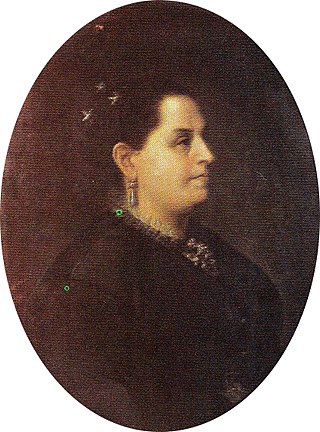This article needs additional citations for verification .(February 2024) |
| |||||
| Decades: | |||||
|---|---|---|---|---|---|
| See also: | Other events in 1809 · Timeline of Chilean history | ||||
The following lists events that happened during 1809 in Chile .
This article needs additional citations for verification .(February 2024) |
| |||||
| Decades: | |||||
|---|---|---|---|---|---|
| See also: | Other events in 1809 · Timeline of Chilean history | ||||
The following lists events that happened during 1809 in Chile .
1809: The Scorpion Scandal hastened Chilean independence.
| | This section is empty. You can help by adding to it. (January 2015) |

Jorge Montt Álvarez was a vice admiral in the Chilean Navy and president of Chile from 1891 to 1896.

Pedro Elías Pablo Montt Montt was a Chilean political figure. He served as the president of Chile from 1906 to his death from a probable stroke in 1910. His government furthered railroad and manufacturing activities but ignored pressing social and labour problems.
Manuel Torres may refer to:

Manuel Francisco Antonio Julián Montt Torres was a Chilean statesman and scholar. He was twice elected President of Chile between 1851 and 1861.

Presidential elections were held in Chile in July 1851. Carried out through a system of electors, they resulted in the election of Manuel Montt as President. Montt was the country's first non-military president.

Club Deportes Puerto Montt is a Chilean football club based in the city of Puerto Montt, Los Lagos Region. The club was founded on May 6, 1983, and currently plays in the Primera B de Chile, the second division of the country.

The Montt family of Chile, descended from Catalan immigrants to the country, includes a number of people who achieved political office and prominence in other fields:
Montt may refer to:
Events in the year 1859 in Chile.
The following lists events that happened during 1845 in Chile.
The following lists events that happened during 1846 in Chile.
The following lists events that happened during 1853 in Chile.
The following lists events that happened during 1854 in Chile.
The following lists events that happened during 1855 in Chile.
The following lists events that happened during 1856 in Chile.
The following lists events that happened during 1857 in Chile.
The following lists events that happened during 1858 in Chile.
The following lists events that happened during 1860 in Chile.
The following lists events that happened during 1861 in Chile.

Rosario Montt Goyenechea was the First Lady of Chile from 1851 to 1861, during the presidency of her husband, Manuel Montt.